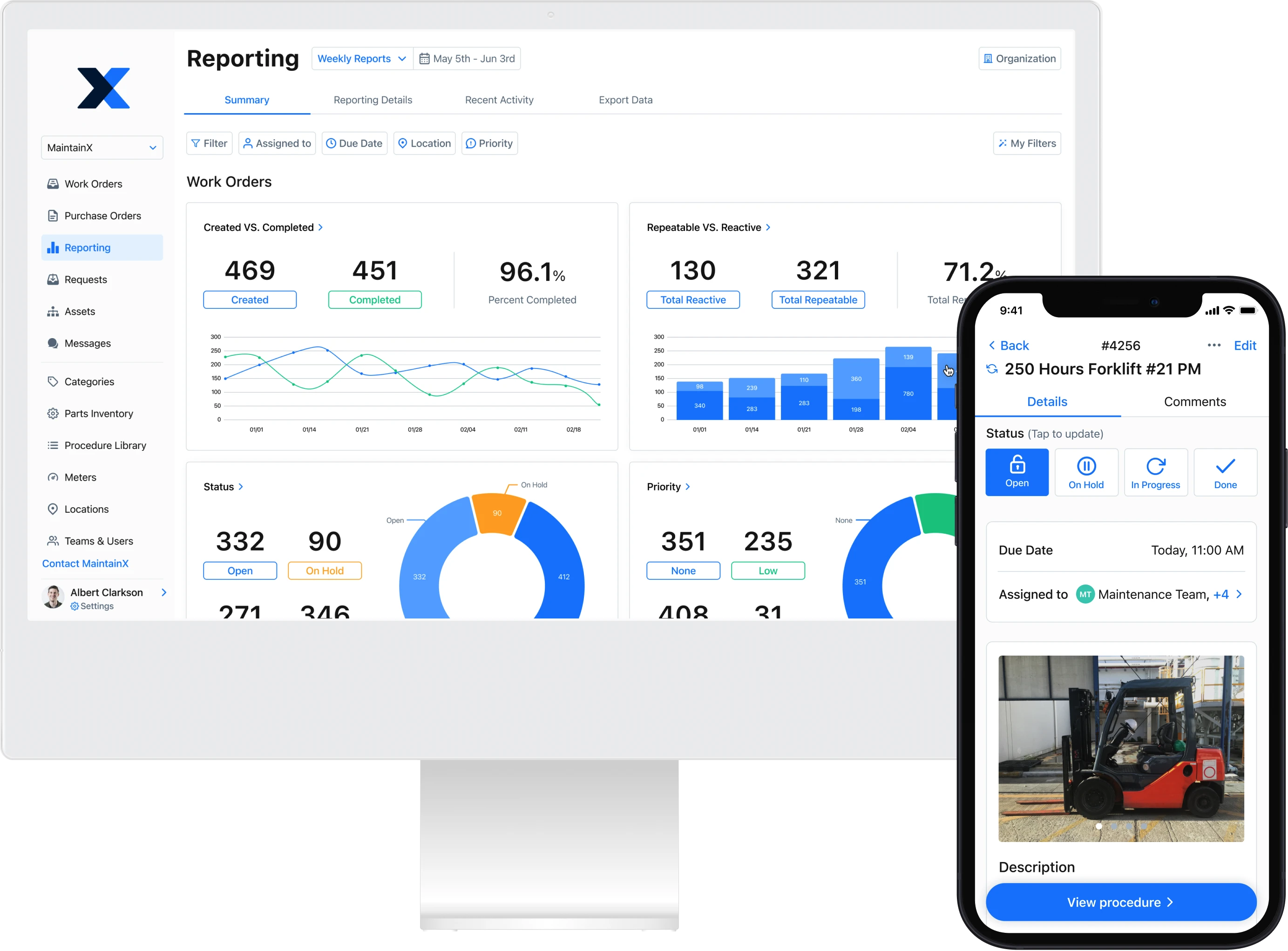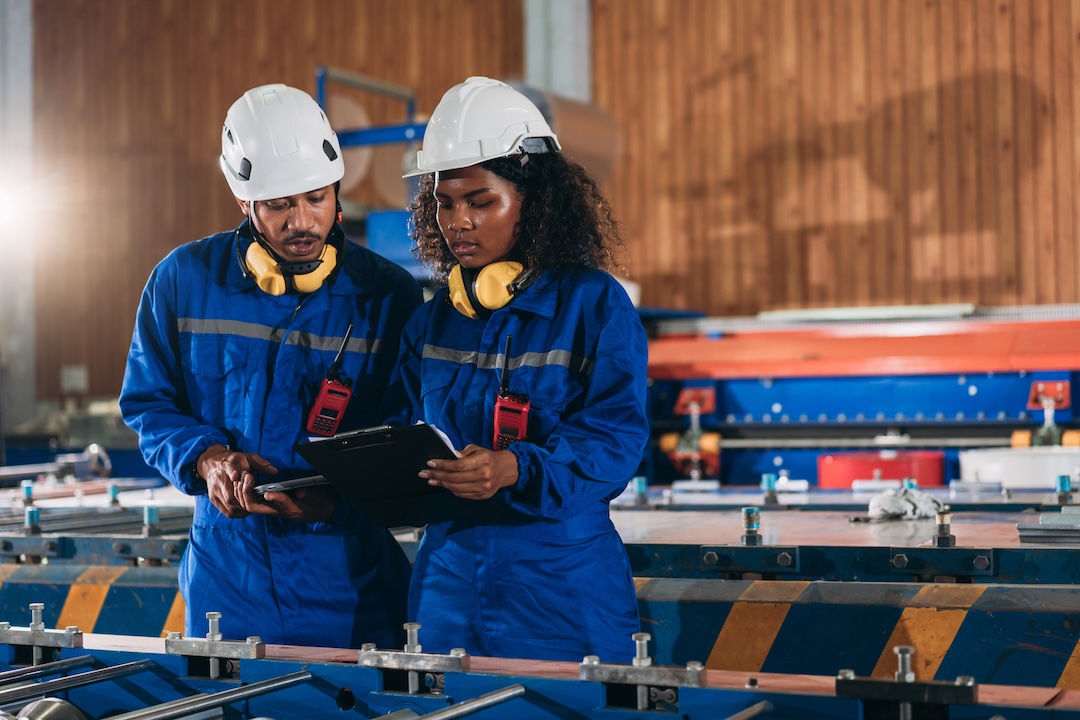
The Key to Successful Employee Onboarding
Despite the best-laid plans, the onboarding process for a new hire often meets a few speed bumps along the way.
A maintenance technician’s first day is typically full of safety inductions, orientation activities, and meeting new workmates. However, once a new employee gets past the basics of your onboarding program, a knowledge gap often opens up. The gap is between the person’s existing competency and the unique and precise nature of their work within your maintenance team.
This specific (and often unwritten) way of completing tasks is known as “tribal knowledge.” You need to find a way to get this wisdom out of existing employees’ heads and into the open. Access to year’s of experience is the secret to a faster, more effective onboarding experience.
“In an era of workplace upheaval, companies that create tailored, authentic experiences strengthen employee purpose, ignite energy, and elevate organization-wide performance.”
McKinsey
This is especially true for organizations with an aging workforce. Therefore, it’s critical to record, document, and standardize tasks and procedures now. Otherwise, you risk losing this valuable accumulated knowledge when highly experienced maintenance technicians leave or retire.

Why Onboarding Fails: The Real Cost of Lost Knowledge
Consider this scenario:
Mike knew exactly how to finesse this machine to produce a super high-quality part. Unfortunately, now that he has retired, the rest of the team just can’t match the kind of finish he could turn out. He had the process down to a fine art. I wish we’d documented it before he left the company.”
For many businesses in the manufacturing industry, this is an all too familiar problem.
The Bureau of Labor Statistics reports that across the US, manufacturing companies employ as many as 3.9 million people aged 55 or over. This leaves many businesses at risk of losing their deep organizational knowledge as staff transition out of the workforce in the coming years.
It’s common for maintenance processes and procedures to develop organically over a long period and never be formally recorded. This might be working for your business right now. But, having no standard operating procedures in place, conflicting processes, or no guardrails for minimum quality standards makes it incredibly difficult to onboard new team members effectively.

Risks of Not Documenting Knowledge
Risks of not documenting accumulated knowledge have other business impacts, including:
- A drop in product quality when skilled operators leave or retire. New techs may not know how to produce work at the same high standard.
- A drop in employee engagement if staff cannot carry out tasks in an acceptable way or their work continually fails QA checks.
- Higher employee turnover due to a lack of training programs or bare-minimum training that falls short of what is required to do the job.
- Unnecessarily high labor costs due to avoiding the inevitable loss of skilled employees. Some businesses may be overpaying machinists in their 70s or 80s. They may think they can’t afford to lose these individuals because they don’t have a succession plan in place.
- Workplace safety issues may arise due to employees relying on tribal knowledge rather than fully understanding the safety implications of how they carry out a task.
Training programs for production and maintenance staff tend to get little attention until a crisis. Still, by documenting standard procedures, you can future-proof your business, streamline the ramping process, and help new hires hit the ground running.
“A recent McKinsey Global Institute report notes that the future of work will bring more remote work . . . and the continuing rollout of automation and artificial intelligence (AI). There will be major workforce transitions for millions across the globe, many of whom face a widening skills gap and other challenges. Work will increasingly be defined in terms of skills.”
McKinsey
The Solution to an Efficient Employee Onboarding Process
An onboarding strategy that considers sharing accumulated or tribal knowledge is the most efficient approach to new employee onboarding. For example, mandatory company policies, OHSA regulations, and equipment operation manuals can be combined. Add on-the-job training with experienced employees, boosting retention rates and creating a positive, learning-focused work environment.
Leaders in the manufacturing space prioritize recording and documenting this essential knowledge. They also lean on new technologies and digital tools like a CMMS (Computerized Maintenance Management System) to get their process documentation sorted.
“New employees with good onboarding experience are 18X more committed to their employer.”
TechJury
Tips for Documenting Tribal Knowledge
- Record your experienced employee’s processes by observing, taking notes, recording videos, or taking photos. Then, use this information to create tutorials and standard operating procedures for new hires to follow.
- Review how several experienced employees complete a task–do different people do it in different ways? Why does one person add an extra step here? Does this extra step add value? Often these small touches are essential and can be missed by someone new to the role.
- Consider asking older employees to mentor younger workers or shadow them for their first month on the job. This hands-on approach is one of the best ways to share skills.
- Assess whether your more experienced staff are creating waste through overengineering or overproducing a product. If so, you can work to remove this unnecessary waste and streamline the workflow. However, if the employee’s nuanced approach is essential to the end product, document it as part of your standard operating procedures.
- Consider both the obvious, concrete steps in a process and the “soft skills” involved, like taking extra care to remove burrs or aligning a serial number plate so it’s perfectly straight. A checklist can be helpful to ensure high-quality craftsmanship throughout each stage of production, no matter who is carrying out the task.
- Take an innovation mindset–by taking a balanced look at the existing way people work. You may be able to identify newer, more effective, and more efficient ways of doing things.
The most crucial step is to document your procedures digitally so that everyone throughout the business can access them. A bunch of paperwork in a binder isn’t doing anyone any good just sitting on the shelf. Sharing knowledge and making it available for everyone means getting your SOPs into a CMMS, pronto.

SOP Software to Make Onboarding Easy
CMMS software like MaintainX helps you get standard operating procedures, checklists, tutorials, operating manuals, and more into one easy-to-access platform.
It’s simple to use for both your tech-savvy employees and those lacking strong digital skills, making it easy for everyone to share, communicate, and develop a practical knowledge hub for your business. Get started today for free.
FAQs

Caroline Eisner is a writer and editor with experience across the profit and nonprofit sectors, government, education, and financial organizations. She has held leadership positions in K16 institutions and has led large-scale digital projects, interactive websites, and a business writing consultancy.







.webp)